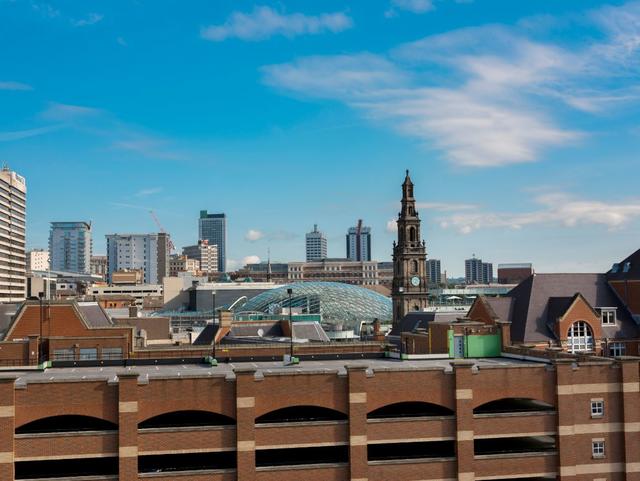Leeds Clean Air Charging Zone plans approved by government
25th January, 2019 - 17:40

Leeds City Council have been given final approval and more than £29 million in funding from the government to implement a Clean Air Charging Zone in the city and support businesses affected.
The Clean Air Charging Zone will reduce air pollution in Leeds by encouraging businesses to transition to cleaner, less polluting vehicles that are not subject to charges for driving within the zone boundary. It is set to go live from the 6th January 2020.
Only owners of the worst polluting heavy goods vehicles (HGVs), coaches, buses, taxis and private hire vehicles will be subject to charges. Private cars, vans or motorcycles will not be charged.
To help businesses based within the zone boundary transition to cleaner vehicles and avoid daily charges, the government has confirmed that £23 million of the £29 million total funding will be available to support affected businesses.
Cllr James Lewis, executive member with responsibility for sustainability and the environment said:
“Having now received the green light from the government, our priority is to ensure the successful delivery of the Clean Air Charging Zone as required by Ministerial Direction over the next fifty weeks.
“Businesses that are likely to be affected need to look at the vehicles they operate and begin their final preparations for the introduction of the zone.
“We recognise that this will be a difficult transition for some businesses to make. We have not received the full amount of funding that we asked the government for, however, we are pleased to confirm today that a number of significant financial support packages will be available to assist owners of affected vehicles. We will be working hard to make sure this money is available swiftly.
“Leeds City Council will not make money from these charges. Charge revenue will only be used to cover the costs of operating the CAZ, to support owners of affected vehicles, and for other schemes to improve air quality in the city.
The plans come after the government instructed Leeds City Council to tackle air pollution in Leeds as soon as possible after finding that parts of the city would likely fail legal air quality levels by 2020.
Evidence shows that spending time in areas with high levels of air pollution can worsen symptoms of asthma, damage our lungs and reduce our life expectancy.
FAQs
How will Leeds Clean Air Charging Zone work?
The Clean Air Charging Zone will reduce air pollution in Leeds by encouraging businesses to transition to cleaner, less polluting vehicles that won’t be subject to charges. To help businesses do this the council will be offering a range of support packages for affected businesses based within the CAZ boundary.
Where will the Clean Air Charging Zone be?
The CAZ will cover more than half of Leeds but will improve air quality both inside and outside of its boundary. You can view a detailed interactive map of the proposed CAZ boundary.
Which vehicles will be charged for driving within the Clean Air Charging Zone?
Only the worst polluting heavy goods vehicles (HGVs), buses, coaches, taxis and private hire vehicles that do not comply with Leeds' minimum emissions standards will be charged for driving within the CAZ.
What support will be available for businesses affected by the Clean Air Charging Zone?
The following outlines the financial support packages available for affected businesses in each sector, and the confirmed government funding available for each of these schemes:
- HGVs: grants of up to £16,000 per affected vehicle, subject to funding competition (£13.8 million available)
- Non-scheduled buses/coaches: grants of up to £16,000 per affected vehicle, subject to a funding competition (£2 million available)
- Taxi/private hire: Interest-free loans of up to £10,000 per affected vehicle, subject to meeting our eligibility criteria, or Grants of up to £1,500 per affected vehicle, subject to meeting our eligibility criteria (£7.3 million available)
Will private motorists, vans or other light goods vehicles (LGVs) be charged for driving within the Clean Air Charging Zone?
No. All other vehicles—including light goods vehicles, private cars and motorcycles—will not be charged for driving within the zone. Only heavy goods vehicles, buses, coaches, taxis and private hire vehicles that do not meet our minimum emissions standards will be charged daily for driving within the zone. For a full explanation of why Leeds City Council are not proposing to charge private vehicles, see this blog post.
Will Leeds City Council make money from these charges?
Leeds City Council will not make money from these charges. Government regulation means that any charge revenue can only be used to cover the costs of operating the CAZ scheme or on other schemes that will also improve air quality in Leeds.
What are the daily charges?
You will be charged for driving within the CAZ if your vehicle fails to meet our minimum emission standards. Charges for each non compliant vehicle are :
HGV £50
Bus/coach £50
Taxi/private hire £12.50 (£50 per week for Leeds licensed vehicles)
Private cars, LGVs, vans, motorcycles, other: no charge
How will the Clean Air Charging Zone be monitored?
To help businesses switch to cleaner vehicles and avoid charges, Leeds City Council are offering a range of support packages for affected businesses based within the CAZ boundary.
The CAZ will be constantly monitored using a network of purpose built cameras capable of automatic number plate recognition (ANPR). Some of these cameras will be fixed and some will be mobile. The cameras will be active 24 hours a day, 365 days of the year.
To cover the costs associated with these cameras and other infrastructure required for the operation of the zone, Leeds City Council has been given approximately £6.3 million in funding from the government.
Will traffic build up in other areas of the city?
Modelling shows that CAZ proposals will have minimal displacement of vehicles into other areas of the city. Leeds City Council are also working closely with Highways England and council departments responsible for transport in Leeds to further minimise any potential displacement.


